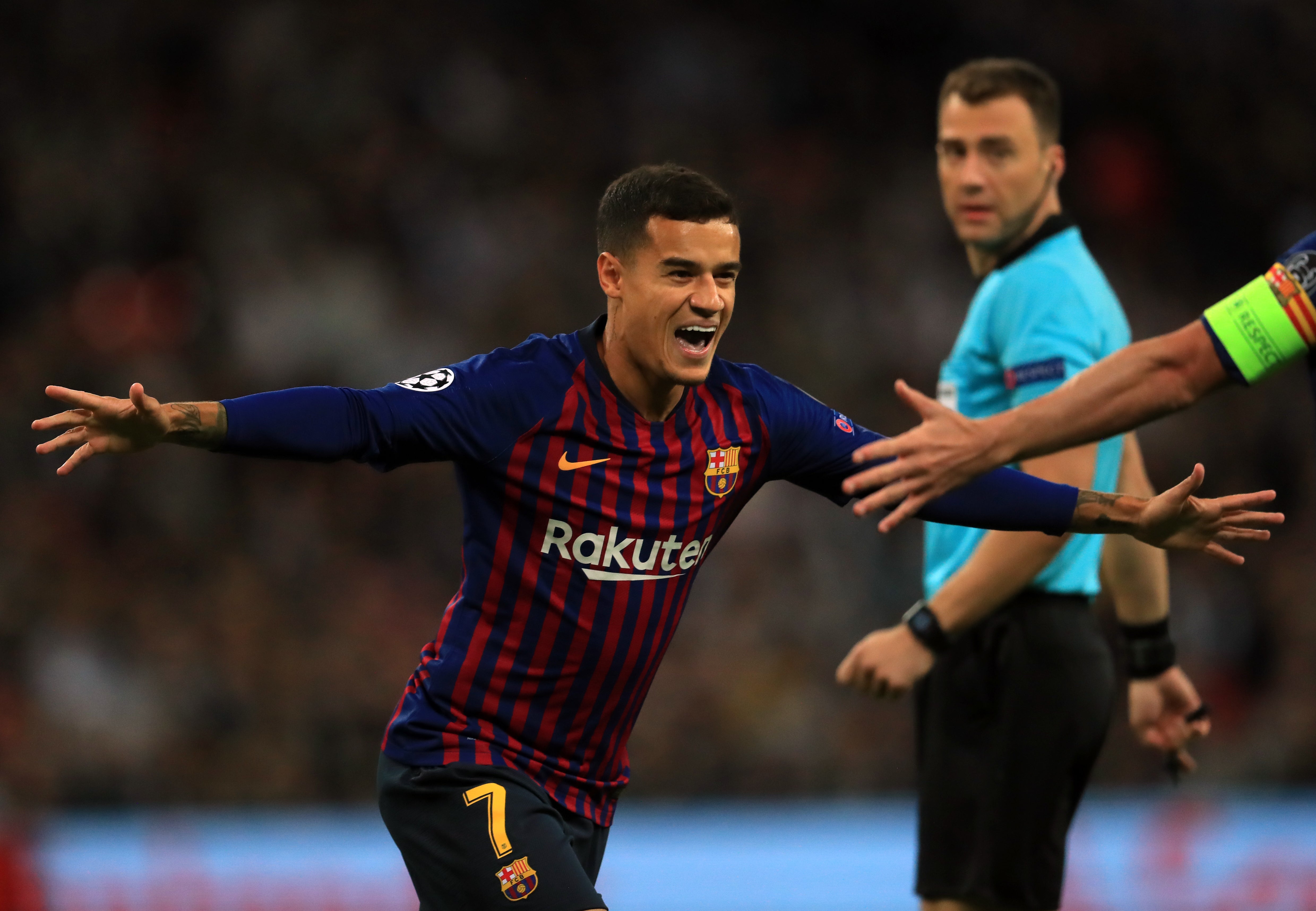
Liverpool manager Jurgen Klopp insists he has never struggled to bring in the players he wanted despite working to certain financial restrictions.
The club’s net spend since the German took charge in October 2015 is around £133million – considerably less than most of their rivals.
That has been achieved by some canny signings and also clever and lucrative sales of fringe players, while the departure of Philippe Coutinho to Barcelona for in January 2018 supplemented the purchases of Virgil Van Dijk, Fabinho and Alisson Becker.
Klopp admits under Fenway Sports Group’s ownership they have to operate differently to the likes of Manchester City, Chelsea and Manchester United but that does not necessarily mean their own approach is detrimental to their ambitions – as has been proved by winning the Champions League and Premier League in back-to-back seasons.
“I cannot remember that we struggled to get players in that we wanted to get in,” said Klopp.
“Phil (Coutinho) was the last one (Liverpool lost against their wishes) probably but that always can happen.
“I know from outside it is always ‘Sign him, sign him, sign him’ but we were always there slightly different, we tried it a different way signing players obviously.
I cannot remember that we struggled to get players in that we wanted to get in.
“I can’t remember the last time we struggled talking to a player: that doesn’t mean they all come but it wasn’t that we were not sexy enough or shiny enough.”
When Klopp arrived the club’s much-touted – and often ridiculed – transfer committee, with the soon-to-depart sporting director Michael Edwards a key player, was in operation.
While it drew criticism from some quarters, Klopp believes the process of collaboration is actually helpful and that is what their subsequent recruitment success has been based on.
“From the first press conference, you asked about the transfer committee. I really thought ‘What’s the problem with the transfer committee?’,” he said.

“I just had to understand the word because for me it is always a transfer committee, it’s not the official name for it but we just sit a few smart people together and talk and say ‘Can we do it or not do it?’.
“One says ‘the money is too much’, the other says other information about his character, another says ‘Forget all this, I want him because he is so good’.
“That is what I understand was the transfer committee. Yes, we have to be more economical because we don’t have endless resources (but) the players wanted we didn’t always get for different reasons.
“Sometimes money was the reason but then we thought ‘No, we don’t want to do it’, and not ‘we cannot do it’.
“The main thing is you think: Will the player fit? Will the player help us? Will he help us to make the next step?
“It doesn’t always work out but sometimes it does and then the player can have an impact and that is what we try to do and will still.”







